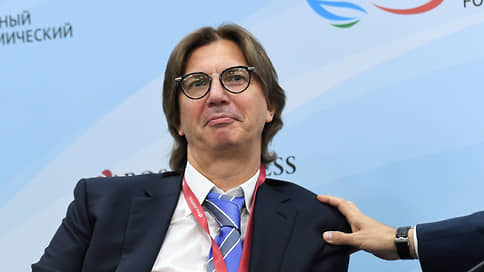Vadim Shvetsov left Green Crab carsharing – now he is 100% owned by RusHydro
[ad_1]

The former owner of the Sollers auto concern, Vadim Shvetsov, left the Green Crab car sharing in Vladivostok – now he is 100% owned by RusHydro. Initially, this project was created at the end of 2021 as a parity joint venture, but it was launched only in the summer of 2022, at the same time Mr. Shvetsov sold a controlling stake in Sollers to top management and, according to a Kommersant source, was already discussing the issue of exiting carsharing. RusHydro, which has a network of charging stations in the Far East, now plans to independently develop the project.
Serenity Invest LLC Vadim Shvetsov left the list of RusHydro Carsharing LLC participants, follows from the Unified State Register of Legal Entities. Now the company specializing in short-term rental of electric vehicles in Vladivostok is 100% owned by RusHydro through JSC Hydroinvest. Until May of this year, the company was called RusHydroWays – it was under this name that at the end of 2021 a parity joint venture was created between Sollers Group (now Serenity Invest) and RusHydro’s subsidiary JSC Hydroinvest. The project was launched in the summer of 2022 and operates under the name Green Crab.
Then, in the summer of 2022, Vadim Shvetsov left the automotive business, having sold a controlling stake in Sollers Auto (76.7%) of Alter Invest, owned by the top management of the auto concern. A Kommersant source familiar with the situation notes that the issue of exiting carsharing was already discussed at that time, but the process dragged on.
At the start of the carsharing project, as wrote Kommersant, it was assumed that Sollers would be an operating partner and would connect telematics – it is important for electric vehicles to ensure their continuous operation (including remote battery charge control). RusHydro, for its part, developed a network of charging stations for electric vehicles in the Far East, which was planned to be loaded, including through carsharing.
RusHydro reported that they would continue the project on their own. The plans for the development of electric charging stations (ECS) will not be affected by the consolidation, since carsharing and the ECD network are two different projects, they said. When asked if this was a cash deal, the company said they did not disclose commercial terms.
Kommersant’s interlocutor notes that the company has not yet made a profit, so the deal was most likely at a symbolic price.
According to the reporting, the loss of RusHydro carsharing at the end of 2022 amounted to 33.1 million rubles. The company had three loans from the founders – at the end of 2022, liabilities to Hydroinvest JSC amounted to almost 51.7 million rubles. for a period until December 28, 2029, Serenity Invest – 11.5 million rubles. and almost 2.3 million rubles. under two contracts for the same period. Obligations may be repaid ahead of time.
The RusHydro carsharing fleet now has 111 electric vehicles, the company clarified to Kommersant. At the start, the company leased 15 JAC iEV7s (according to RusHydro carsharing, the company has 16 such cars in total), and in December 2022, another 95 Evolute electric vehicles assembled by Motorinvest in Lipetsk. It was originally planned that 140 electric vehicles would be purchased in 2022-2023, RusHydro reported in September 2021. When asked about current plans, the company said that “when making a decision to expand the fleet, RusHydro will focus on demand from the population and the possibility of recoupment of further investments.” “RusHydro has a large EZS network in Sakhalin, and by the end of summer the company plans to start providing electric car sharing services in Yuzhno-Sakhalinsk in a test mode,” the company added.
[ad_2]
Source link





